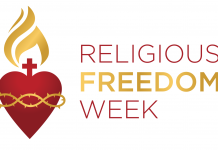
MARLENE SWEENEY
Many parishes will soon face the challenge of “working on the budget.”
February is budget time in Chicago. Directors of religious education are expected to submit projected budgets for their upcoming program year to the persons responsible for their parish finances—who, in turn, submit the entire parish budget to the downtown office for review. Like it or not, concerns about money, salaries, and unplanned expenses get pushed to the forefront amidst Lenten planning, sacramental programs, and (often) mid-winter snowstorms. I doubt that this is any DRE’s favorite time of the year!
Dependence on God
Ministry costs money. When facing program proposals and dreams of new resources, matched with shrinking dollars, wage freezes, and cutbacks, it is difficult to bring a hopeful heart to the details of developing a budget.
Yet, as people of faith and leaders in our community, we must exhibit a healthy dependence on God as we put together a fiscal plan that is responsible and reflective of our community’s needs. Forecasting your ministry’s monetary needs for the year ahead might best be accomplished with parish partnership, planning, and prayer.
Parish Partnership
The joy of passing on our faith to the next generation and those who have yet to hear God’s promise belongs to all of us. Too often the DRE can be viewed by parishioners as the staff person responsible for children’s catechesis or family sacramental programs, thereby only interacting with a small portion of the total parish community. This fragmented view of parish life can result in many people not feeling invested in catechesis due to not fully understanding their role in being a witness to the gospel message.
It behooves us, as a parish staff, to cast our net widely when we speak of catechesis. If we are all summoned to find ways to make our faith come alive in today’s culture, then a parish financial shortfall is the concern of everyone. As a DRE, I am not just a good woman or a good man who has to find a way to run a program for your children. Rather, I am one among you who has been called to lead our parish to find the best way we can help others grow into a deeper knowledge of Jesus Christ.
We are in this conversion story together. Together we will look with transparency at our financial situation—both in the past and in the present. Together we will brainstorm ideas and support one another in finding new ways to run programs, keep staff people employed, and be good stewards of the material gifts we already have.
Regardless of whether people have young children who are enrolled in a program or have already completed their sacramental initiation, these people hold a sense of ownership in the ministry of catechesis. They, too, want to see that all those who seek a deeper relationship with Christ are welcomed into parish life and are given the tools and resources they need to grow in their knowledge of God.
Planning and Praying
In the past, projected budgets were often accomplished by simply adding a pre-determined increase across the board. I recall how I routinely increased all program expenses by 3 to 6 percent to meet predicted inflation; that seems like a simpler time, uncomplicated by a decrease in revenues and the current financial challenges that so many families face.
As parish leaders, we need to be in touch with the rising number of home foreclosures and unemployment statistics in our communities. We need to be aware of shrinking parish collections that will have an impact on our ministry and parish life. Planning is no longer easy.
Yet, as people of faith, we embrace God’s promise: “I know the plans I have for you,” declares the Lord, “plans to prosper you and not to harm you, plans to give you hope and a future. Then you will call upon me and come and pray to me, and I will listen to you” (Jeremiah 29:11-12). Reimagining a sustainable way to build programs and outreach ministries is our new future. Even if we were to experience economic recovery tomorrow, we have all been challenged and changed by the times in which we have lived. The new normal invites us to live with less, to invite entire parishes (or clusters of parishes) to become better equipped to maintain excellent ministries in which the next generation will discover God’s goodness.
Where the Spirit Leads
In the encyclical Caritas in Veritate, Pope Benedict XVI observes that “the economy needs ethics in order to function correctly—not any ethics whatsoever, but an ethics which is people-centered” (n. 45). As ministers in today’s Church, we realize that people are the greatest riches in our community. The bottom line in any budget crunch will be: How can we best serve the People of God?
As God’s people we will find an answer. It will not come by fretting over finances but by opening our hearts and minds to where the Spirit of God is leading us. The face of the mission and our sponsorship may look different. Plans may take on a more moment-by-moment response. Trusting in God, we will emerge with deeper roots into all that is truly important.
Marlene Sweeney, Med, MA, is a Certified Pastoral Associate in the Archdiocese of Chicago. Marlene is a writer and poet whose works have appeared in numerous books and periodicals.
This article appeared in Catechist magazine, December 2009.
Image Credit: DedMityay/Shutter Stock 567877570




